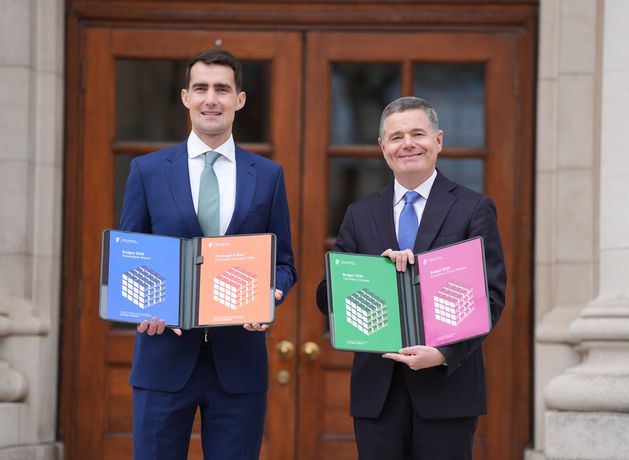The Special Assignee Relief Programme (Sarp), which was due to expire at the end of the year, gives relief from income tax on 30pc of a salary over €100,000. Paschal Donohoe, the finance minister, has announced it will be extended for five years, but the minimum qualifying income is being increased to €125,000.
Mr Donohoe promised to simplify some of the requirements attached to the scheme, with further details to be set out in the Finance Bill.
The scheme cost the Exchequer over €56m in 2023, with 2,925 foreign workers benefiting. Michael Rooney, a tax partner at EY Ireland, said 953 of those executives earned less than €150,000. The increase in the qualifying threshold would mean some of these would miss out, but the savings to the Exchequer would be minimal.
“Of the 953 that qualified in 2023, let’s say 400 of those earned €125,000 or less, then the savings to the Exchequer of 12pc per taxpayer would be €1.2m at best and probably less than €1m,” he said.
Daryl Hanberry, head of tax and legal at Deloitte Ireland, said the extension of Sarp would provide certainty for companies, “although the increase in the minimum limit to €125,000 is not helpful”. The hope, he said, is that the simplification measures to be introduced will relate to “the removal of certain unnecessary filing requirements”.
A tax exemption for foreign dividends, introduced last year, was extended in the Budget, in a bid to increase Ireland’s attractiveness to multinationals. The participation exemption means that foreign dividends received by companies based here are not taxed a second time.
Mr Donohoe said he will expand the geographic scope of the exemption to include jurisdictions where non-refundable withholding taxes apply, and introduce some technical amendments to improve its operation.
The chief executive of American Chamber, Paul Sweetman, said the changes will bring Ireland into line with international norms.
The Finance Minister also announced that a research and development (R&D) tax credit will be increased from 30pc to 35pc, while the first-year payment threshold will go from €75,000 to €87,500, in a bid to support smaller research projects.
ISME, the lobby group representing smaller businesses, said the increase in the R&D tax credit was welcome, but was mostly confined to the FDI sector. “The taxpayer is subsidising multinational pharma and technology at the expense of indigenous enterprise,” it said.
“SMEs continue to face rising costs in energy, insurance, wages, and compliance, with little in this Budget to deliver the structural reform needed to support competitiveness or protect local employment.”
The Irish Tax Institute said the R&D change will help in the battle for inward investment, which is all the more urgent because of uncertainty in global trade and international tax reforms.
Peter Vale, of Grant Thornton Ireland, said the increase in the tax credit would enhance Ireland’s reputation as a knowledge economy. “It also mitigates some of the adverse impacts of recent US tax changes aimed at disincentivising R&D carried out outside of the US.”
